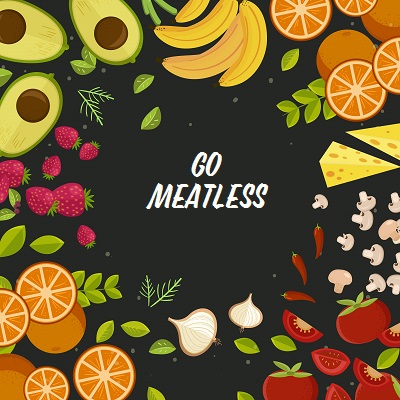 What used to be a fad a couple of decades ago is proving to be more beneficial in many ways. Several studies that show the benefits of a meatless diet are attracting more people to jump on the bandwagon. Why not? You are not only making your body healthier and stronger, you are helping conserve water as well.
What used to be a fad a couple of decades ago is proving to be more beneficial in many ways. Several studies that show the benefits of a meatless diet are attracting more people to jump on the bandwagon. Why not? You are not only making your body healthier and stronger, you are helping conserve water as well.
Even in this modern world, about one billion people still do not have access to clean drinking water in some countries. Water is a basic need. Just think about how hard it must be for these people to look for sources, yet, in other countries, people take its value for granted and waste it.
Should you wait until water shortage knocks at your door before making a move? When it comes to water, every droplet counts, therefore, every little effort counts.
How Going Meatless Helps Conserve Water
Recent studies show that meat consumption is one of the biggest contributing factors in some of the world’s most serious environmental problems today, from global warming, fuel dependence to increased water consumption.
Water scarcity is a serious problem you should be concerned about wherever you live in the world. It may not affect you now, but it could your children or your children’s children. Letting go of meat is one of the ways to help conserve water and there are studies to prove it.
For example, Americans, on average, consume about 46 pounds of pork, 83 pounds of chicken and 56 pounds of beef per year. Now, do you know how much water is used to produce these meats?
It takes 576 gallons of water to produce a pound of pork, 468 gallons for a pound of chicken and 1,799 gallons for a pound of meat. It takes that much water to produce a few slices of meat.
Agricultural farming is responsible for 65 percent of freshwater withdrawals around the world. This includes both livestock and crop farming. Freshwater withdrawals come from under and surface water sources, such as lakes, rivers, and reservoirs. Livestock farming accounts for the eight percent usage of human water.
Crop farming also makes use of water. Obviously, you cannot grow crops without water. But, the thing is, growing crops for human consumption requires less water use than growing livestock for the same purpose. You only need 375 gallons of water to yield three pounds of potatoes.
People eat meat because it is a good source of protein and comparing potatoes and meat may not be the perfect example to point out the difference in water usage. But, the main point is producing meat takes more water than producing plant foods.
You need to grow crops to feed the animals for their meat. You have to keep the animals clean to keep them free from disease. You have to keep their habitats clean for sanitation purposes. All these require more water than growing crops and eating their yields after.
Consumers have a big say on the law of demand and supply. If more people are willing to give up meat consumption and switch to a plant-based diet, the total number of gallons of water conserved even for just a day can make a huge difference.
Meatless Diet: The Proper Way to Do It
- If you are considering going meatless for personal or environmental reasons, you should learn how to do it properly. Going meatless can be more harmful than beneficial if you do it the wrong way. Here are a few tips on how to switch to a meatless diet properly:
- Meatless does not always mean healthy. You need to minimize your consumption of junk foods, soda, and meatless fast foods or processed foods. These foods may be meatless but they are unhealthy.
- Eat varied plant foods. Nutritional deficiencies are a great risk to meatless dieters, especially of protein and iron. Eating a variety of plant foods helps to reduce this risk. Research about what foods provide specific nutrients mostly found in meats.
- Go slow. Sudden changes in your diet can take your digestive tract by surprise. Meatless diets are high in dietary fiber which can have an unpleasant effect if consumed in high amounts especially if you are not used to it. Going slow also lets your taste buds adjust to the changes too.
Switching to a meatless diet has a lot of perks if planned carefully and done properly.






